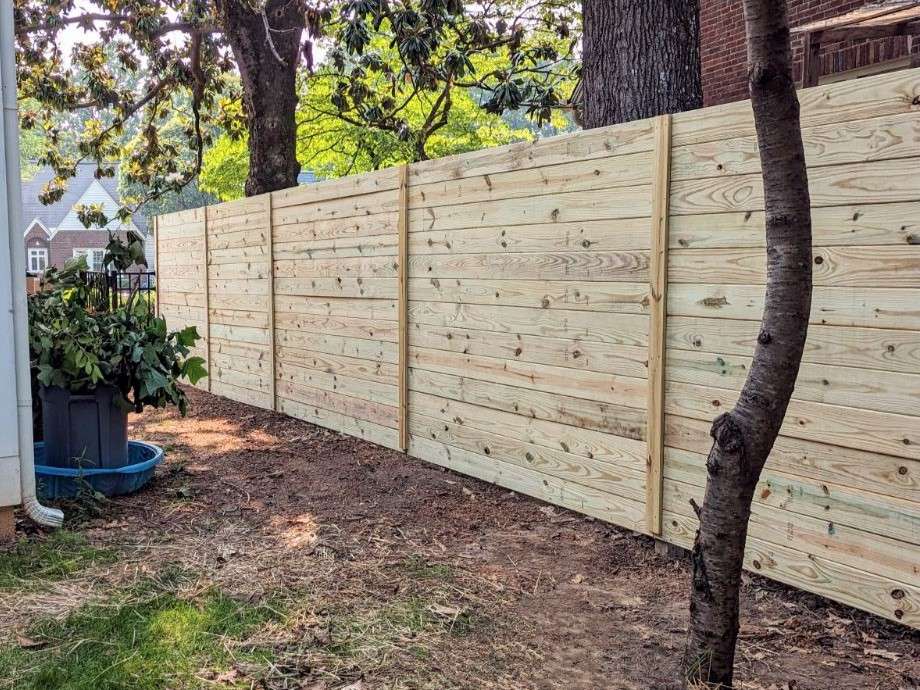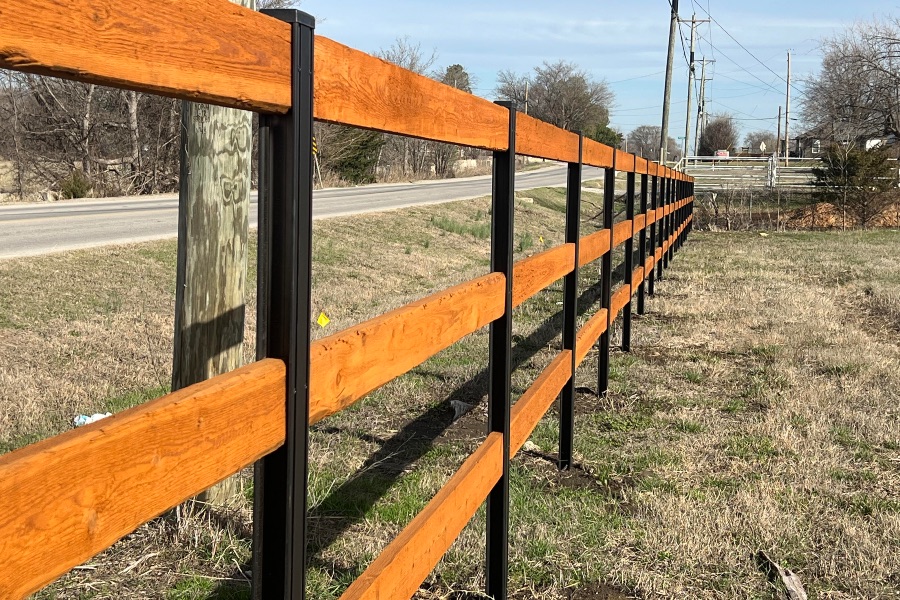All Categories
Featured
What Kinds Of Fence Materials Are Available for Residential and Commercial Projects?

When intending to install a fencing, picking the best material is important for fulfilling the visual, functional, and budgetary requirements of your residential or commercial property. Whether for commercial or residential use, contemporary fence options use a variety of choices to match certain needs. Here's a comprehensive look at the most usual fencing materials available today.
- Timber Fence. Timber is a timeless choice for home owners seeking beauty and adaptability. It works well for personal privacy fencings, ornamental designs, and boundary noting.
Key Advantages of Wood Secure Fencing:
Visual Adaptability: Can be crafted into different designs, consisting of latticework, picket, and board-on-board styles. Cost-efficient: Deals cost for numerous projects, particularly smaller domestic ones. Customizable: Quickly repainted or stained to match a home's exterior. Drawbacks: Calls for routine maintenance, such as securing and discoloring, to shield versus weathering and pests.
- Vinyl Fencing. Vinyl secure fencing has actually expanded in popularity as a result of its streamlined look and very little upkeep requirements. It's a fantastic option for both household and industrial rooms.
Advantages:
Resilient and long lasting: Plastic resists weather condition damage, bugs, and fading. Easy Maintenance: A quick wash with soap and water keeps it looking immaculate. Fashionable Alternatives: Comes in multiple shades and textures, some simulating all-natural timber. Considerations: The initial cost is greater, yet the long-lasting savings on upkeep can make it a wise investment.
- Chain-Link Secure fencing. Chain-link fencing is a practical option for protecting big locations, commonly made use of in commercial, industrial, and recreational residential or commercial properties.
Advantages:
Affordability: One of the most affordable fence choices. Resilience: Takes on tear and use, also in hard atmospheres. Visibility: Supplies a clear view while maintaining protection. Drawbacks: Restricted visual appeal and privacy unless integrated with slats or foliage.
- Light weight aluminum Secure fencing. Aluminum provides an innovative look without compromising on resilience. It's particularly popular for decorative or protection objectives.
Secret Features:
Rust-Free: Perfect for damp environments or swimming pool units. Reduced Upkeep: Calls for marginal upkeep compared to iron or wood. Sophisticated Appearance: Frequently utilized to imitate wrought iron without the substantial rate tag. Considerations: Not as solid as steel, making it less ideal for high-security needs.
- Wrought Iron Fence. Understood for its classic style and durability, wrought iron is a favorite for upscale homes.

Benefits:
Stamina and Security: Difficult to damage or bend, making it ideal for high-security applications. Personalized Designs: Can be formed right into complex patterns for an unique appearance. Longevity: With proper maintenance, wrought iron can last for years. Disadvantages: Needs routine maintenance to avoid rust and is among the much more expensive fence options.
- Compound Secure fencing. Compound fencings incorporate wood fibers and plastic for a long lasting, environment-friendly alternative.
Benefits:
Environmentally Pleasant: Often made from recycled materials. Low Maintenance: Immune to rot, parasites, and bending. Natural Appearance: Imitates the look of wood without the upkeep. Disadvantages: Higher ahead of time price compared to standard wood fence.
- Bamboo Fencing. Bamboo is a fashionable and sustainable option, specifically for houses seeking a natural aesthetic.
Advantages:
Eco-Friendly: Bamboo is sustainable and eco-friendly. Unique Appearance: Includes a zen-inspired or tropical touch. Affordable: Frequently cheaper than hardwoods. Disadvantages: Less long lasting in extreme climates or versus prolonged direct exposure to dampness.
- Steel Fence. Steel secure fencing supplies exceptional toughness, making it a go-to choice for commercial and business requirements.
Features:
Heavy-Duty Stamina: Deals with significant influences and weather condition obstacles. Customizable Finishes: Powder covering improves its appearance and durability. Safety: Suitable for areas needing improved security. Factors to consider: Higher price and weight make it much less suitable for small tasks.
- Stonework or Stone Secure Fencing. For residential properties seeking a highly durable and irreversible masonry, stone or option fence is a premium selection.
Advantages:
Ultimate Sturdiness: Withstands severe weather condition and lasts for years. Soundproofing: Blocks sound, making it excellent for urban locations. Luxury Aesthetic: Supplies a high end appearance that complements premium buildings. Disadvantages: High setup prices and minimal adaptability in layout modifications.
Exactly How to Choose the Right Material. When choosing a secure fencing material, think about the following elements:
Function: Do you need protection, privacy, or attractive appeal? Budget plan: Some materials, like timber and chain-link, are cost-efficient, while functioned iron and rock come with a costs. Upkeep: Products like plastic and light weight aluminum are much easier to preserve, while wood and functioned iron need normal care. Climate: Some materials, such as bamboo or untreated timber, are less appropriate for severe climate condition. Verdict. Secure fencing materials today use a wide selection of alternatives to match various budget plans, features, and designs. Whether you prioritize longevity, visual appeals, or eco-friendliness, there's a product that will fit your demands. By collaborating with a professional fencing professional, you can check out these choices in-depth and guarantee a perfect installment for your household or industrial task.
Latest Posts
Explore Limited-Time Auto Repair Deals in Chicago at Montclare Auto Repair
Published May 24, 25
1 min read
Recognizing When Your Car Needs Expert Auto Repair at Montclare Auto Repair
Published May 24, 25
1 min read
Specialist Industrial Roofing Solutions in North Platte, Nebraska
Published May 23, 25
2 min read
More
Latest Posts
Explore Limited-Time Auto Repair Deals in Chicago at Montclare Auto Repair
Published May 24, 25
1 min read
Recognizing When Your Car Needs Expert Auto Repair at Montclare Auto Repair
Published May 24, 25
1 min read
Specialist Industrial Roofing Solutions in North Platte, Nebraska
Published May 23, 25
2 min read